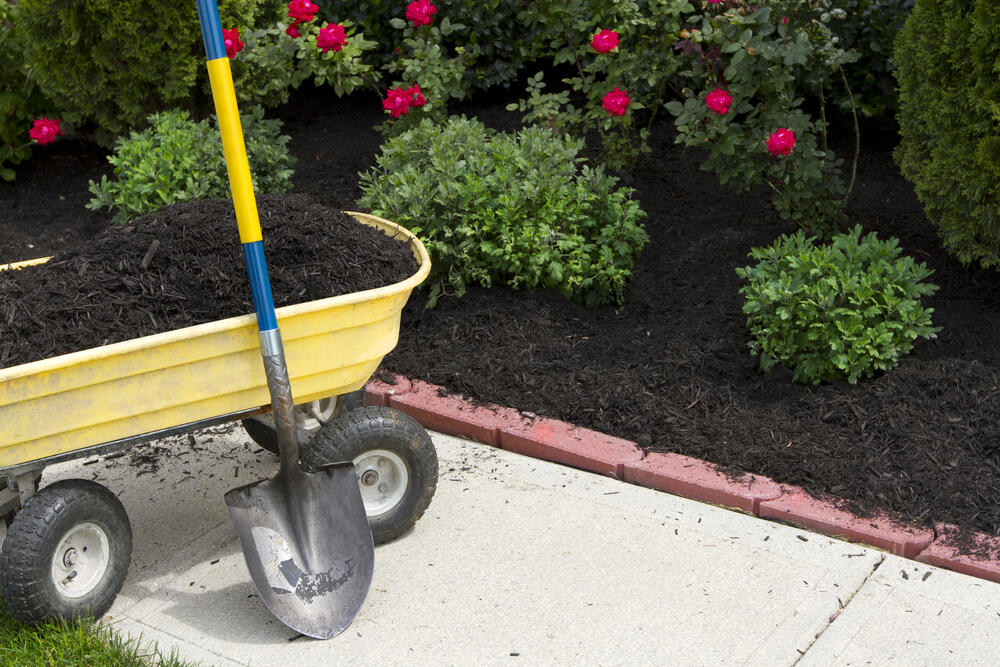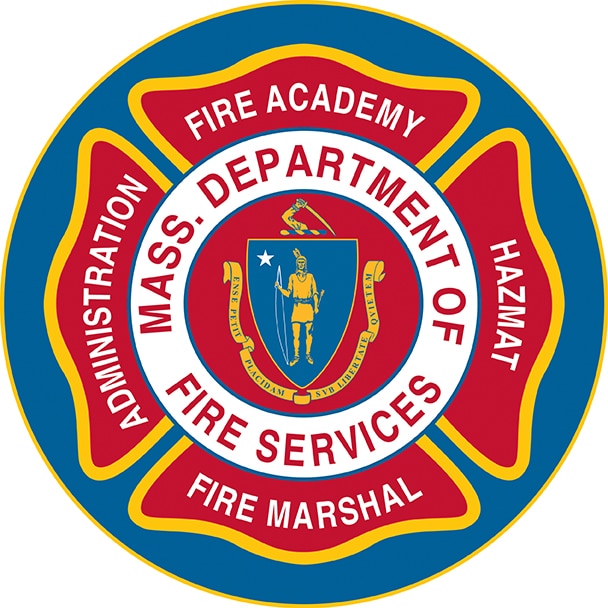- Department of Fire Services
Media Contact

STOW — State Fire Marshal Peter J. Ostroskey said, “Every spring, people spruce up their properties with fresh mulch and firefighters respond to many fires started by cigarettes tossed into mulch. Mulch is combustible and can easily catch fire.” He added, “We are asking smokers to dispose of their smoking materials responsibly in order to prevent fires. Don’t toss cigarette butts into mulch or a pile of dried leaves.”
Provide Proper Smoking Receptacles
“Businesses and homeowners that are sprucing up their landscaping should also provide and maintain safe receptacles for disposing of smoking materials so that people won’t start fires by tossing cigarettes into the mulch,” said State Fire Marshal Ostroskey. “Metal containers with sand are best.”
Report Smoldering Mulch
“If you see a smoldering mulch bed please call 9-1-1 so the fire department can make sure it is truly extinguished. Mulch can smolder for a long time before erupting into flames,” said Ostroskey.
Fires that start on the exterior of buildings are usually not detected early. By the time smoke and heat enters the building to trigger a fire or smoke alarm or sprinkler system, the fire is already large. Fortunately, many mulch fires are noticed and extinguished before spreading to a building or motor vehicle.
Nurseries, Landscapers and Property Managers Need to Know the Rules
Fire officials want to remind building owners, property managers, nurseries and landscaping companies about the proper placement and storage of mulch in order to prevent these types of fires. Ostroskey said, “It’s important for mulch storage piles to be 30 feet apart to keep fires from spreading.”
Keep Mulch 18” Away From Buildings
Here are some tips for property managers and building owners on how to prevent mulch fires:
- Keep wood mulch 18 inches away from combustible exteriors of buildings such as wood or vinyl siding and decks. Do not put it right up against the building.
- Use materials such as pea stone or crushed rock for the first 18 inches as a barrier around the foundation of the building and around gas and electrical meters.
- Provide proper receptacles for smoking material disposal.
State Fire Code on Mulch Application
The Comprehensive Fire Safety Code (527 CMR 1.00, section 10.13.10.4.1) prohibits the new application of mulch within 18” around combustible exteriors of buildings, such as wood or vinyl but not brick or concrete. Residential buildings with six units or less are exempted from this regulation, but all homeowners may also wish to adopt these safety practices. The regulation applies to all other buildings including commercial properties.
Storage and Manufacturing of Mulch
The regulation (527 CMR 1.00, sections 31.3.6.3.2.2 & 31.3.6.4.3) also has safety requirements for those who store or manufacture mulch. It limits the size of mulch piles and requires a distance of 30-feet between piles and 25-feet from the lot line. Large piles of mulch can easily spontaneously combust with all the heat they generate, so it is important to be vigilant and employ good housekeeping. The distance between piles prevents a fire from easily spreading to another pile or to a building.
Permits Required to Store 300+ Cubic Yards of Mulch
Permits are required from the fire department wherever more than 300 cubic yards of mulch is produced or stored.
Educate Your Staff: Mulch Safety Flyers
You can download mulch safety flyers in English and Spanish from our website.
Preventing Mulch Fires - English
Preventing Mulch Fires – Spanish
Building managers, landscapers and companies that store and sell mulch can use it to educate their staff.
Major Mulch Fires
Between 2016 and 2020, there were 199 fires that started in mulch and spread to buildings. These 199 fires caused five civilian injuries, 10 fire service injuries and an estimated dollar loss of $3.1 million.
While most mulch fires are caught early before spreading to buildings, there have been a number of large-loss mulch fires in Massachusetts.
On the afternoon of July 10, 2018, the Boston Fire Department responded to a fire in a 6-unit apartment building started by a discarded cigarette in a mulch bed. The front porch ignited and flames rapidly climbed up the exterior of the building caused an estimated $250,000 in damage. No one was injured at this fire and smoke alarms alerted the occupants. The building did have sprinklers inside but the fire was on the outside, not in the area protected by them.
The most notable mulch fire in Massachusetts occurred in May 2015 in a large Arlington apartment complex. One man died in the fire started by smoking materials discarded in a mulch bed, which then spread to the building. Thirty-six apartments and six cars were destroyed. The building had no sprinklers and the estimated dollar loss was $6.7 million.
In April 2012, improperly discarded smoking materials ignited mulch outside an assisted living center in Braintree. The fire forced many older adults to evacuate in the early morning hours. Several suffered smoke inhalation injuries.
In May 2008, a cigarette ignited a mulch fire at a Peabody apartment complex. It caused $6.7 million in damage to the building, displaced 750 people temporarily and 36 permanently.
###
